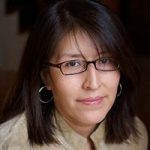Since it started in September, I have been attending the Folger Institute’s Year-Long Dissertation Seminar: Researching the Archive. While attending the seminar once a month, I have spent time using the collections and beautiful reading room. The reading room experience is one of the best, including stained glass and tapestries, tea time in the afternoon, and complimentary coffee in the cloak room. Friendly scholars populate each of these spaces, and afternoon tea in particular provides visitors with the opportunity to discuss their work with other scholars.
While the Folger’s collections focus on English published works, it is still extremely useful for an Americanist like myself. I have spent most of my time looking at atlases, maps, and texts on surveying between 1570 and 1650. Christopher Saxton’s atlas of England has been especially interesting. Its beautifully colored and extremely detailed maps are a joy to look at and represent the cutting edge of English cartography at their time. They form the beginning of a cartographic genealogy that lasted for decades. But Saxton’s atlas and other English publications do not only inform the reader about English culture: they are the cultural texts that informed how English colonists understood North America.
16th and early 17th-century English texts are invaluable to Americanists who study the first few decades after colonization. It is important for us to remember that the ideas of the first settlers did not come from a void, but from a rich cultural and literary tradition in England. This tradition included not only religious texts and philosophical discussions, but technical manuals for skills like surveying as well. When the English began to survey and map America, it was from these texts that they drew their information. When they encountered moral dilemmas, they drew from English religious texts. One glance at the books held in the extensive libraries of important colonists like the Mather family confirm the importance of English literature for America.
The seminar itself is a two-and-a-half-hour discussion followed by a presentation from a visiting scholar. This year’s seminar is run by a historian, Keith Wrightson, and a literary scholar, James Siemon. The guest speakers have been great, and included Andy Wood and Lena Orlin. The combination of historians and literary scholars provides variety to the readings and discussions that is rare to find. Being the only Americanist in the seminar has been a great boon for me. The knowledge and perspectives of English historians and literary scholars has helped me rethink elements of my project or fill in gaps in my knowledge.
If you have the opportunity to attend the Dissertation Seminar at the Folger, I would highly recommend it. Washington is a great city to visit at any time of year, and the Folger is one of the most charming archives around. While mostly rare books, it also has numerous manuscript collections and several fascinating maps and atlases. The seminar is a great way to meet and engage with interesting scholars from around the country, and I would highly recommend it to Americanist grad students.
Nathan Braccio is a Ph.D candidate in the UCONN History Department. He received his B.A. and M.A. in history from American University. His research focuses on the conflux of geography and identity in 17th and 18th century New England. More information on his research can be found on his webpage nathanbraccio.com. Contact him at nathan.braccio@uconn.edu.
 Sandy Grande
Sandy Grande

